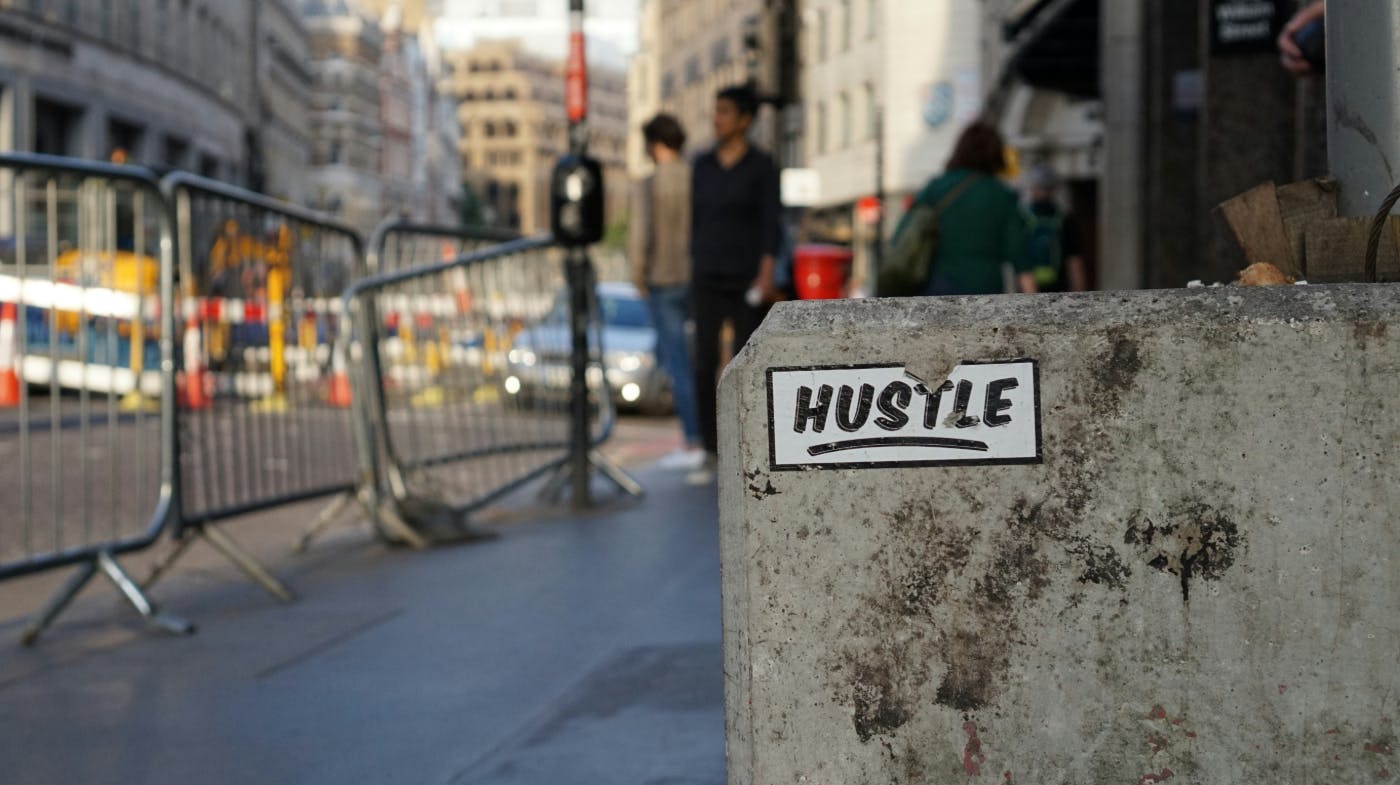
When it comes to brands, trust is built in much the same way—through consistency, honesty, and the ability to meet expectations.
What is Trust, Really?
Trust is a delicate yet powerful force. It’s that invisible glue that holds relationships together, whether personal or professional. When we trust someone—or something—we believe in their reliability, honesty, and competence. It’s the confidence that they will act in our best interest or, at the very least, not actively betray us.
In a personal sense, trust is knowing your best friend won’t spill your secrets, your spouse won’t eat the last slice of pizza without asking, but she eats it anyway, and your favorite barista won’t serve you decaf by mistake. But trust extends beyond personal relationships—we place our trust in institutions, professionals, and systems every day. We trust the police to uphold the law fairly, doctors to provide competent medical care, and teachers to educate and guide the next generation. These are, in many ways, sacred trusts. And when those trusts are broken—when an officer abuses power, a doctor acts negligently, or an educator is dishonest—the impact is profound.
When it comes to brands, trust is built in much the same way—through consistency, honesty, and the ability to meet expectations. We trust companies to deliver what they promise, to be ethical in their practices, and to act in the best interests of their customers. To be trusted means you’ve earned a certain level of goodwill. People believe in your integrity, your promises, and your ability to deliver. But when that trust is broken, it’s not just a disappointment—it’s a betrayal. And in the world of business, where consumers have endless choices and social media never forgets, that betrayal can be catastrophic.

How Brands Lose Trust
Brands don’t wake up one morning and suddenly find themselves untrusted—it’s a process, often of their own making. But why would a brand choose to turn its back on trust in the first place? The reasons can be as complex as they are shortsighted:
- Chasing Short-Term Gains – Sometimes, the allure of quick profits outweighs the long-term commitment to trust. Brands cut corners, exaggerate claims, or push out half-baked products to meet financial targets, only to suffer the fallout later.
- Corporate Greed – When maximizing shareholder value becomes the only focus, ethical considerations take a back seat. Some brands knowingly deceive or take advantage of customers, betting that the backlash won’t be severe enough to truly hurt them.
- Desperation and Survival Mode – A struggling company might resort to dishonest tactics out of sheer desperation. When survival is on the line, the temptation to bend the truth or overpromise becomes dangerously attractive.
- Lack of Strong Leadership – A company’s values are often a reflection of its leadership. Weak or unethical leadership can lead to a culture where trust is sacrificed for the sake of convenience or competitive advantage.
- Belief in Brand Invincibility – Some brands, especially well-established ones, believe they are too big to fail. They assume that even if they lose consumer trust, their market dominance will protect them. Spoiler alert: that doesn’t always work out.
So, how exactly does a brand go from being a trusted name to a cautionary tale? The path to losing trust is paved with missteps—some accidental, some intentional, and all damaging.
1. Deception and Dishonesty
Nothing shatters trust faster than outright deception. Whether it’s false advertising, misleading claims, or outright lies, customers feel betrayed when they discover they’ve been duped. Remember when Volkswagen’s emissions scandal broke? Consumers realized they’d been sold an environmental lie, and the brand’s credibility took a nosedive.
2. Failure to Deliver on Promises
If a company promises the “best customer service experience” but then makes you wait on hold for two hours, that’s a problem. If they promise “ethically sourced” but get caught cutting corners, trust erodes quickly. A promise is a contract, even if it's unwritten, and breaking it leads to consumer resentment.
3. Product Failures and Safety Issues
When a brand releases a faulty or dangerous product, consumers feel betrayed. Think about the Takata airbag recalls or Samsung’s infamous exploding Galaxy Note 7. When safety is compromised, trust isn’t just lost—it’s obliterated.
4. Poor Crisis Management
Mistakes happen, but how a company responds to a crisis makes all the difference. Brands that deflect blame stay silent, or issue tone-deaf apologies only make matters worse. Just ask any company that’s tried the “non-apology apology” route—it never goes well.
5. Inconsistent Brand Behavior
A brand that stands for sustainability but is later caught polluting a river? Trust erodes. A company that champions inclusivity but underpays its employees? Hypocrisy damages credibility. Consistency in messaging and action is key.
When trust is lost, the damage doesn’t end with a few disgruntled customers. The ripple effect can spread far and wide, impacting everything from customer loyalty to a brand’s bottom line. Let’s take a closer look at what happens when a brand falls from grace.

The Fallout of Broken Trust
Losing trust doesn’t just mean a few bad reviews—it’s a full-blown reputational earthquake with aftershocks that can last for years. When a brand loses trust, customers don’t just shrug and move on; they take their business elsewhere, they tell their friends, and if they’re really upset, they take to social media with a vengeance.
Think of trust as a bridge between a brand and its customers. When that bridge collapses, people don’t try to climb through the wreckage—they find another route. The fallout can be devastating:
- Loss of Customer Loyalty – Customers who once swore by a brand can quickly turn into vocal critics. Once trust is broken, many consumers never return. Why should they, when there are a dozen other brands eager to earn their business?
- Revenue Decline – A drop in customer confidence often translates into plummeting sales. It’s not just about losing individual buyers—it’s about lost market share, declining stock prices, and in some cases, the eventual downfall of the business itself.
- Reputation Damage – Negative press and social media backlash can be long-lasting. Today’s digital landscape ensures that a brand’s mistakes live forever. Even if a company tries to move on, a quick Google search will always remind people of its past misdeeds.
- Legal and Regulatory Issues – Some trust violations lead to lawsuits, fines, or government intervention. When trust is broken in ways that involve fraud, safety violations, or deceptive practices, legal trouble isn’t far behind. And nothing erodes consumer confidence faster than a brand being dragged through the courts.
The real consequence? When trust is broken, it’s not just about the customers a brand loses—it’s also about the ones it will never gain. New potential buyers, wary of past scandals, might never even give the company a chance. Once the damage is done, rebuilding that bridge is no small feat.
Can Trust Be Rebuilt?
The short answer: sometimes. The long answer: only if a brand is willing to put in the work. Trust, once broken, doesn’t come back with a simple apology or a flashy ad campaign. It requires patience, transparency, and a real commitment to making things right. Consumers aren’t just watching—they’re waiting to see if the change is real or just another marketing ploy.
Take a brand like Chipotle. After multiple food safety outbreaks left customers wary, the company didn’t just issue an apology and hope for the best. It went back to the drawing board, overhauling its entire food safety protocol and making sure customers knew about every improvement. This wasn’t a quick fix—it was a methodical effort to rebuild trust, one careful step at a time.
So, how can a brand pull off a comeback? It takes more than just good intentions. Here’s what it requires:
1. Own the Mistake
There’s nothing worse than a half-hearted apology. Customers don’t want corporate spin—they want honesty. A brand that openly admits to its mistakes, without deflection or excuses, has a fighting chance of regaining trust. People can forgive a mistake; they won’t forgive a cover-up.
2. Take Immediate Action
Words mean nothing without action. If a product is faulty, recall it. If a scandal erupts, address it head-on. Delayed responses or minimal efforts only make customers more skeptical. The faster and more decisively a company acts, the more likely it is to stop the bleeding before the damage becomes irreversible.
3. Over-Communicate
Silence breeds suspicion. A company trying to rebuild trust needs to communicate openly and frequently. Regular updates, visible changes, and clear messaging about what’s being done to fix the problem reassure customers that the company is serious about making things right.
4. Demonstrate Change Through Actions, Not Words
Anyone can say, “We’ve learned from our mistakes.” But showing that lesson in action is what truly matters. If a brand was caught engaging in unethical business practices, it needs to provide proof of a shift toward ethical sourcing, fair treatment of employees, or whatever change it promised. Consumers are watching closely, and they have long memories.
5. Leverage Third-Party Validation
Trust is easier to rebuild when it’s not just the company saying, “Look, we’re better now!” Getting endorsements from independent sources—whether regulatory bodies, consumer advocates, or influencers—adds credibility to the recovery effort. When an outside voice verifies that change has taken place, skeptical consumers are more likely to believe it.
But does rebuilding trust actually work? History says yes—at least for brands willing to put in the effort. Some have faced disaster and still managed to come back stronger. The difference between those that recover and those that don’t? A commitment to action, not just words.

Brands That Lost and Regained Trust
Not every brand that stumbles stays down. While some companies collapse under the weight of their mistakes, others take responsibility, make changes, and come back stronger. The road to redemption is never easy, but for those willing to put in the work, it can be done.
Consumers are willing to forgive—but only if they see real effort and improvement. A brand that acknowledges its missteps, communicates transparently, and follows through with meaningful change can regain its standing. Let’s look at some companies that have faced major trust crises and successfully rebuilt their reputations.
- Apple – When the infamous “Bendgate” scandal hit, with iPhones bending in people’s pockets, the internet had a field day. Memes, mockery, and frustration spread fast. But Apple didn’t dig in its heels or deny the issue. Instead, it quietly reinforced the structural integrity of its future models, proving that it listened and learned. The brand didn’t just survive—it thrived.
- Chipotle – Food safety scandals are the kind of nightmares that can end a restaurant chain. After multiple E. coli outbreaks, trust in Chipotle nosedived. Instead of hiding behind PR statements, the company went all-in on transparency, revamping its entire food supply chain, rolling out new safety procedures, and openly discussing improvements with customers. The turnaround wasn’t overnight, but through consistent action, Chipotle won back diners.
- Tylenol – The 1982 cyanide-laced Tylenol crisis is still considered a gold standard in crisis management. Instead of downplaying the danger, Johnson & Johnson immediately pulled every bottle off the shelves—at a massive financial loss. Then, it pioneered tamper-proof packaging, setting a new industry standard. The result? Consumers saw a company that prioritized their safety over profits, and trust in Tylenol was restored.
No brand sets out to lose trust, but history shows that those who fail to protect it often pay the price. The road back isn’t easy, but as we’ve seen, it’s not impossible. The brands that succeed in rebuilding trust do so by taking responsibility, making meaningful changes, and proving their commitment over time.
Trust, once broken, doesn’t come back with a simple apology or a flashy ad campaign. It requires patience, transparency, and a real commitment to making things right.
Summing Up
This is where ThoughtLab shines. As experts in branding, we don’t just help companies build trust—we help them keep it. Through strategic messaging, transparent engagement, and a deep understanding of consumer psychology, ThoughtLab empowers brands to foster credibility, maintain authenticity, and navigate challenges with integrity. Whether a brand is establishing trust for the first time or working to regain it, we ensure they have the tools and insights to thrive in an ever-evolving marketplace.
At the end of the day, trust isn’t a one-time achievement—it’s an ongoing effort. Brands that recognize this and prioritize their relationships with consumers will always have the upper hand. The ones that take trust for granted? Well, let’s just say history isn’t too kind to them. In a world where trust can be shattered in an instant, the brands that survive are the ones that never stop earning it.

